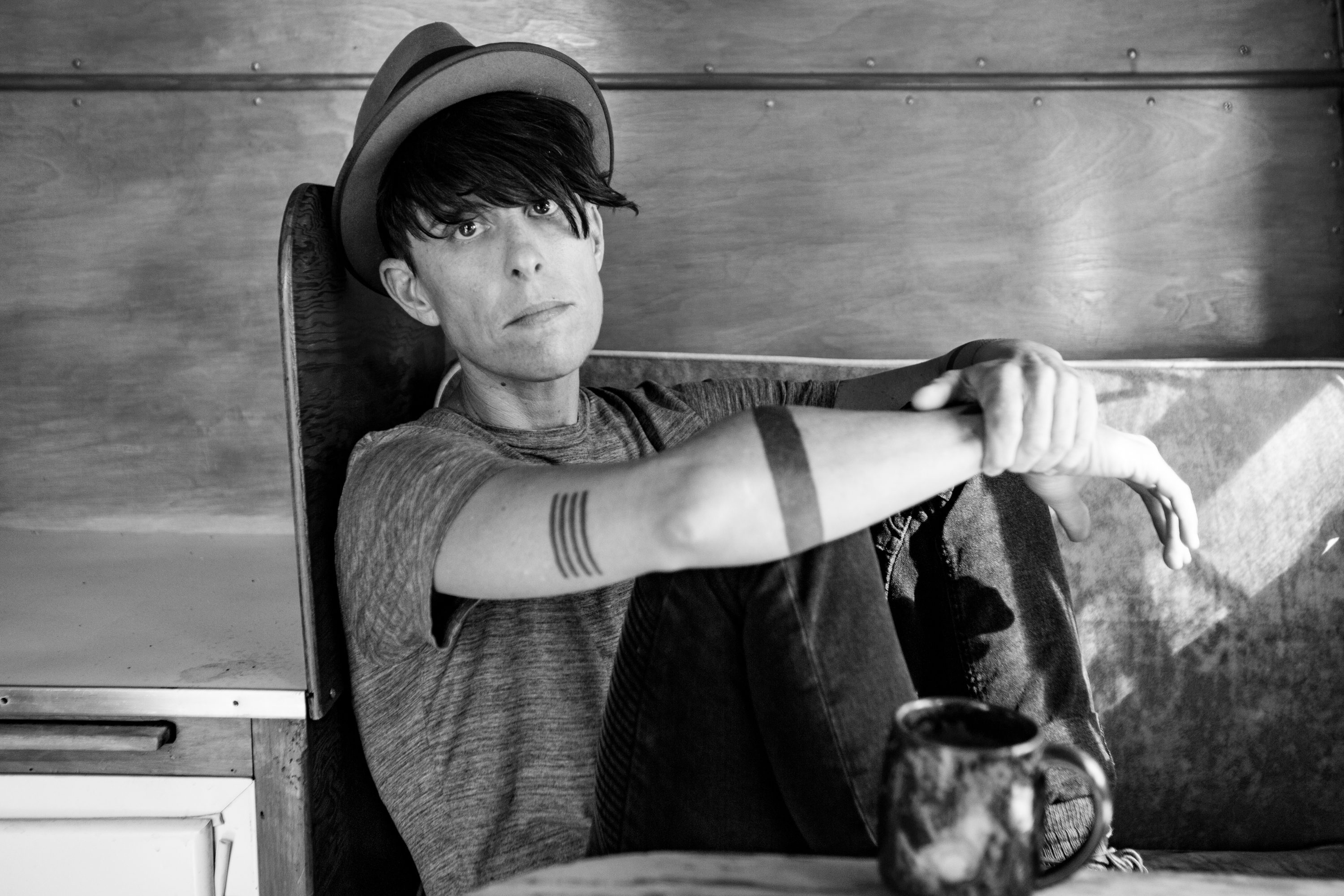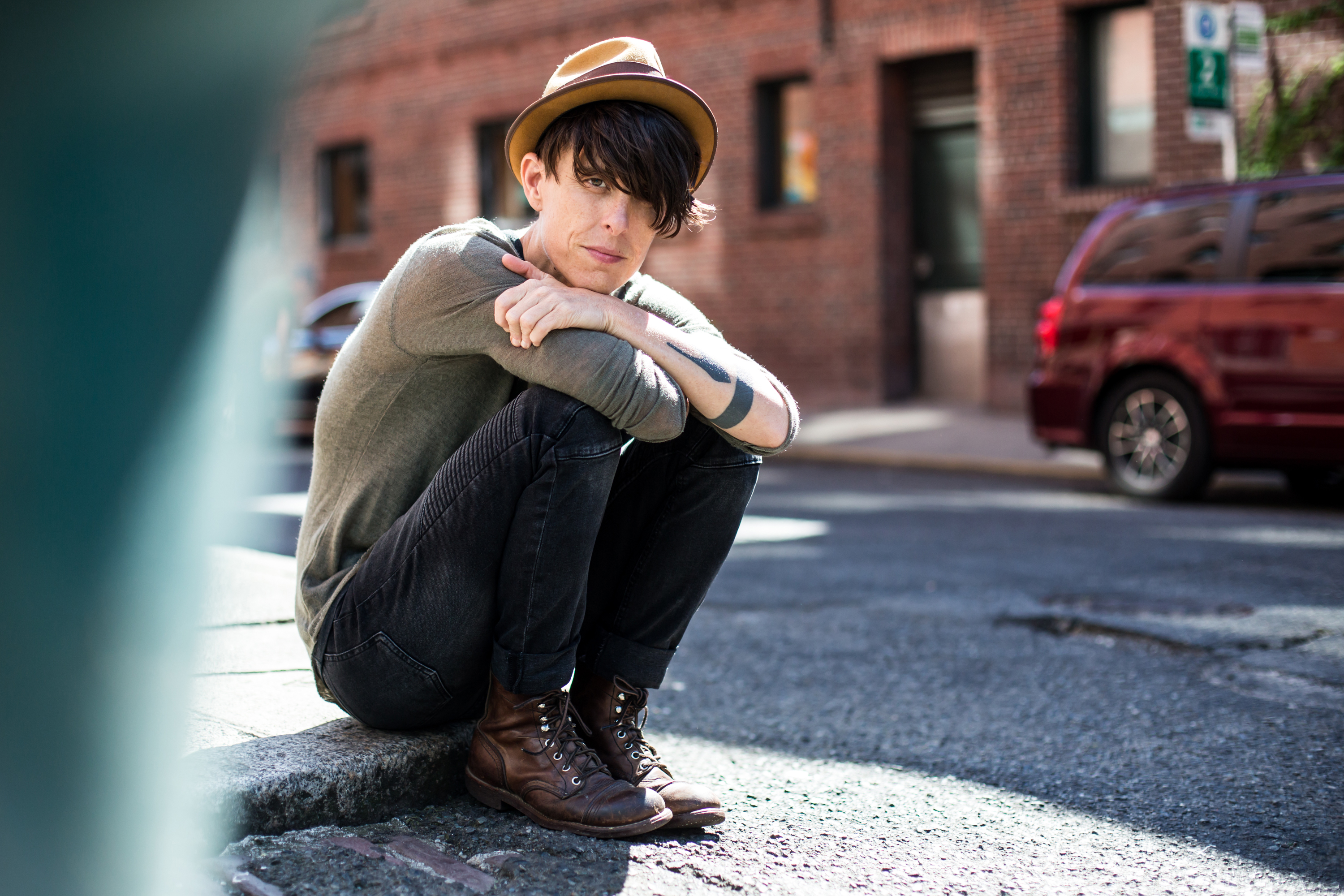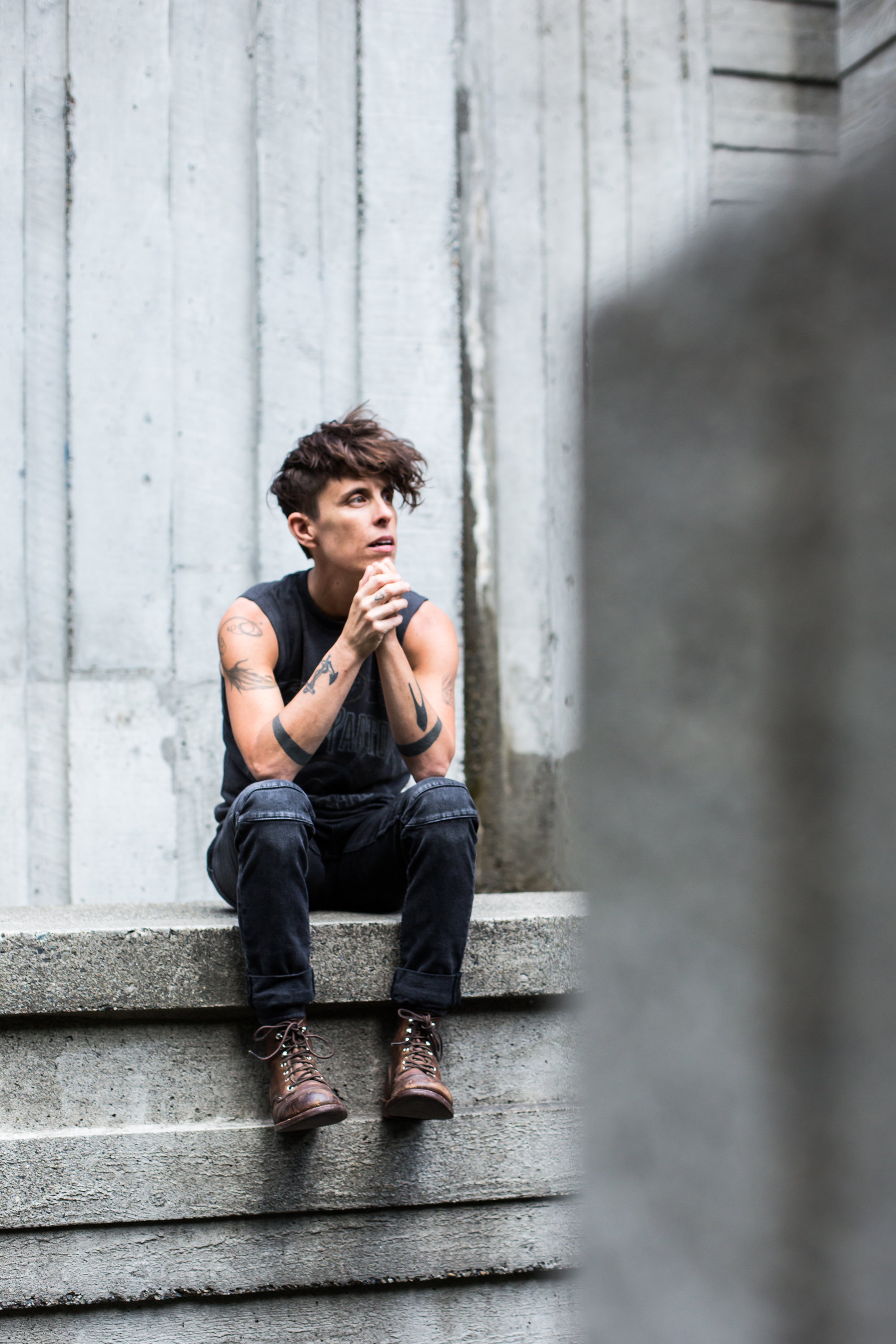
Andrea Gibson was one of the spoken word poets I ever discovered. I would spend hours pent up in my bedroom as an angsty teen listening to them pour their heart out on stages across the country. Sometimes when you don’t quite have the words for the moments you’re going through, listening to someone else eloquently affirm your experience is the most calming feeling.
Gibson started her career in 1999 from a breakup poem and leaped into the forefront of spoken word poetry on the national scene in 2008 when they won the first-ever Woman of the World Poetry Slam. Author of three collections of poetry and currently working on an illustrated collection of their most memorable quotes for Penguin (Winter 2018), Gibson has also released seven (7) full-length albums.
That’s what Gibson’s poetry has done for me through the years, and I’m not alone as they now fill venues with lines of fans waiting to get in for their performances. Their latest album “Hey Galaxy” delves into the shadows of topics most people steer away from out of fear: white privilege, gender dysphoria, mental illness, the beautiful complexities of queer relationships, capitalism, and overall, giving people hope to continue even in the hardest of times.
Get to know a little more about Gibson and where they go to heal, how queerness informs their poetry and vise versa, and where they see the future of poetry going.
GO Magazine: How has poetry changed for you after your video went viral on BuzzFeed?
Andrea Gibson: While poetry is always changing for me, I can’t think of a specific way that changed it. I do, however, notice I’m having more conversations with folks about gender after my shows and as it’s one of my favorite things to talk about, I’ve loved that.
GO: How do you feel about poetry and spoken word going mainstream and reaching a larger audience? What do you feel about Insta-poets and how do you see the poetic landscape changing because of social media?
AG: The more poetry there is in the world the better. Whether folks find poems on Instagram, YouTube, chalked on the sidewalks, or in bookstores it all feels positive to me. It’s been wildly exciting to watch spoken word gain popularity. When I started performing the only people who were attending poetry shows were poets.
Now, people are beginning to show up to see poetry the way they show up to see bands. You don’t have to be a musician to enjoy a band. You don’t have to be a writer to enjoy a poetry reading. Social media is a complicated beast, but it’s making poetry accessible and easy to find for so many, and I’m especially encouraged by the numbers of youth who are in love with poetry now because of it.
GO: What was the process of writing “Hey Galaxy” and “Take Me With You” like for you?
AG: Though the two projects were different, they both involved collaborations with other artists so each was an invigorating process. I almost always prefer to make art with other people. The book was a collaboration with illustrator, Sarah Coleman, whose work I adore. And the album was a collaboration with many of my favorite musicians. Each project speaks to a number of different themes and each was a response to our current political climate and its impact on our lives and spirits.

GO: Where do you go for inspiration when you’re feeling depleted?
AG: I go outside. I live in the mountains and being in nature has always been vital for my wellbeing and that pull has heightened for me since the last election. The air, the sun, the trees almost always bring me back to life when I’m feeling drained. The other place I go is towards the poem I’m afraid to write. My energy gets really low when there is something inside of me that needs expressing that I’m not expressing. It almost always lightens my being to write what is longing to be written.
GO: Who are some of your favorite poets?
AG: It’s always impossible to answer this question because there are too many to list. This morning I’ll say — Donte Collins. Mary Oliver. Danez Smith. Janae Johnson. Shira Erlichman. Buddy Wakefield. Sam Sax.
GO: Do your poems grow with you and evolve? What is it like reading poems years later after they’ve been written?
AG: Whenever I read a very old poem at a show it’s likely that I’ve changed something from the original piece, especially if it’s a piece that speaks to social justice. I’m growing and learning consistently and my lens widens with that learning. Then there’s also the creative aspect of it — I’m not in love with the work I was putting out years ago because there was still so much I had to learn about the craft. BUT, before every show I tap into myself to figure out what I can most authentically read that night, and sometimes it’s something I wrote in 2007. So in that case I’ll replace a better crafted more recently written poem for an older one that I can perform honestly and with heart.

GO: How does activism play a role in your poetry?
AG: They are always intermingling. I want to write poems that inspire people to live more actively compassionate lives, poems that lace the boots of our wish for a kinder world, and poems that challenge our inclination to be patient with systems of destruction. Activism inspires my art, and my hope is to make art that inspires activism.
GO: Can you speak a bit about the role your queer identity plays in your creative process?
AG: My queerness impacts every aspect of my creative process. It shapes how I think, how I feel, how willing I am to land in curiosity and wonder, rather than rightness. And along the same lines, my creative process impacts my queerness. I uncover a lot about myself through writing. This last year I’ve come to know my gender a lot better through poetry. I don’t know who I am and write it down. I write and then know who I am.

What Do You Think?